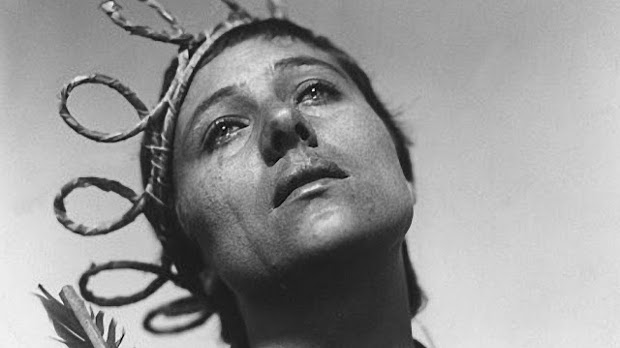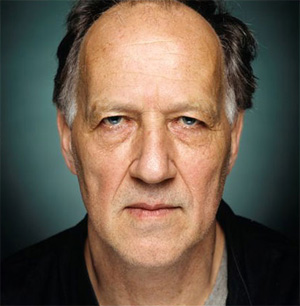 Back to selection
Back to selection
New Year’s Resolutions for Filmmakers

Are you short a New Year’s resolution? Feel free to borrow one of the ones below.
1. Amplify your voice. You have a voice. Make it bigger in 2011. Spread it wider and connect it to more people. If you are working within your own little crew, spread out. If you’ve gotten into a pattern of relying on the same agents or producers or colleagues, enlarge the perimeter of that circle. If face-to-face is your preferred medium, get out more. Do you email or text too much? Call people more. (This one was suggested by Ira Deutchman via Twitter.) If you’re an online presence, define the ways you’ll be able to reach more people and do them.
2. Improve your social. Review your online practices and make them better. Do you blog? Blog more. Or blog less, but more meaningfully when you do. Is your online voice scattered and diffuse? Make it laser-sharp and specific. Or, are you repetitive and one-note? If so, mix it up. Does your Twitter voice “work”? If not, make it better. Is your posting frivolous? Figure out how to make it a bit more pragmatic and effective. Too dry? Loosen it up.
3. See the Essential 100. Great films are nourishing. There are treasures for the present in the past. Don’t get caught up with only the newest — make 2011 the year you fill in the cracks of your cinephilia. An easy way to do this is to watch all the films in the Toronto International Film Festival group’s “Essential 100.” It’s a list of classics selected by critics, curators and audiences published alongside the opening of its new Bell Lightbox facility. For most readers of this blog, I’d imagine committing to what you have’t seen on this list would mean adding less than one film a week. The top ten: The Passion of Joan of Arc (pictured), Citizen Kane, L’Avventura, The Godfather, Pickpocket, Seven Samurai, Pather Panchali, Casablanca, Man with a Movie Camera, The Bicycle Thief.
4. Work for a friend. Take a page from Lucas McNelly and his Kickstarter project — don’t just obsess about your own work, make yourself crew for someone you know. UPM, do locations, cast, take sound for a project of someone other than yourself. Commit to the level of your free time. If you’re not working and can manage it, work on a no-budget feature. Or, perhaps just do a weekend short. You’ll not only help another project make it out into the world, but you’ll also re-ground yourself in filmmaking basics while meeting new people who might assist you out at some point. (And while you decide who you’ll work for, consider supporting McNelly at Kickstarter in its final six days. He’s raising $12,000 to support himself while he spends a year working on other people’s projects. In his own words: “So my plan is to spend a year on the road, traveling around the country and working on indie film projects. I’ll explore the idea of mobility in a creative professional. Just how mobile does our digital lifestyle make us? Does it even matter where we live anymore? How can a creative professional thrive outside of NYC and LA?”
5. Make more than you did last year. I’m talking about work, not money. How much did you make last year? One film? Make two. Six shorts? Make seven. Don’t worry about format. If you made one feature last year and it looks like it will be two years of development before the next, make two shorts instead. Commit to just shipping.
6. Make one piece in a different form. Have you only made features? Make a webisode. Are you a narrative filmmaker? Make a doc. Do you only do long-form? Make a short doc or web video instead. Get out of your comfort zone for at least one piece.
 7. Read more. At his conversation in Toronto this year with Errol Morris, Werner Herzog said that you can’t be a filmmaker without reading. And no, not scripts. Books. So, in 2011, read more. (If you want to take more of Herzog’s advice, you can read these titles from his Rogue Film School: Virgil’s Georgics, Ernest Hemingway’s The Short Happy Life of Francis Macomber, The Warren Commission Report, Rabelais’ Gargantua and Pantagruel, The Poetic Edda, translated by Lee M. Hollander (in particular “The Prophecy of the Seeress”), Bernal Diaz del Castillo True History of the Conquest of New Spain.)
7. Read more. At his conversation in Toronto this year with Errol Morris, Werner Herzog said that you can’t be a filmmaker without reading. And no, not scripts. Books. So, in 2011, read more. (If you want to take more of Herzog’s advice, you can read these titles from his Rogue Film School: Virgil’s Georgics, Ernest Hemingway’s The Short Happy Life of Francis Macomber, The Warren Commission Report, Rabelais’ Gargantua and Pantagruel, The Poetic Edda, translated by Lee M. Hollander (in particular “The Prophecy of the Seeress”), Bernal Diaz del Castillo True History of the Conquest of New Spain.)
8. Review your productivity and alter your creative behavior. Conduct a review of your own best practices, the circumstances and behavior that lead to your greatest level of productivity and/or creativity, and more purposefully engineer the creation of those moments. If the best work you’ve ever done was at a mountain retreat when you were unplugged from the world, do that again. Do you need to go to an office, a library, a Starbucks? Are you better in collaboration with someone else? Do you need more structure? Or less? Does being plugged in all the time create a kind of false productivity? If so, remember to take regular walks around the block or trips to museums and let your mind roam.
9. Learn a new skill. Both beginning filmmakers and veterans could do well in this economy to enlarge their skill sets. If you run a blog, learn SEO. Learn more about mobile platforms. If all of your scripts are features, read some television scripts and learn how they differ in form. Learn to edit. Learn to shoot with a DSLR. Learn to podcast. Learn something new.
10. Change your viewing practices. Do you watch a lot of movies? If so, then your viewing practices may be up for a review. Via Twitter I asked folks what their resolutions were, and Eugene Hernandez replied with, “See more movies on the big screen, old ones as well as new ones, in a theater with an audience.” That’s a good one. For me, it’s to stop three-screening and concentrate more on what I watch at home. In other words, turn off the Blackberry and iPad while the movies run.
What are your New Year’s Resolutions? What would you add to this list? Feel free to comment below…. and Happy New Year!
UPDATE: A year after this post I wrote a follow-up, “More New Year’s Resolutions for Filmmakers. It’s a little crankier and more far-ranging. You can read it here.
